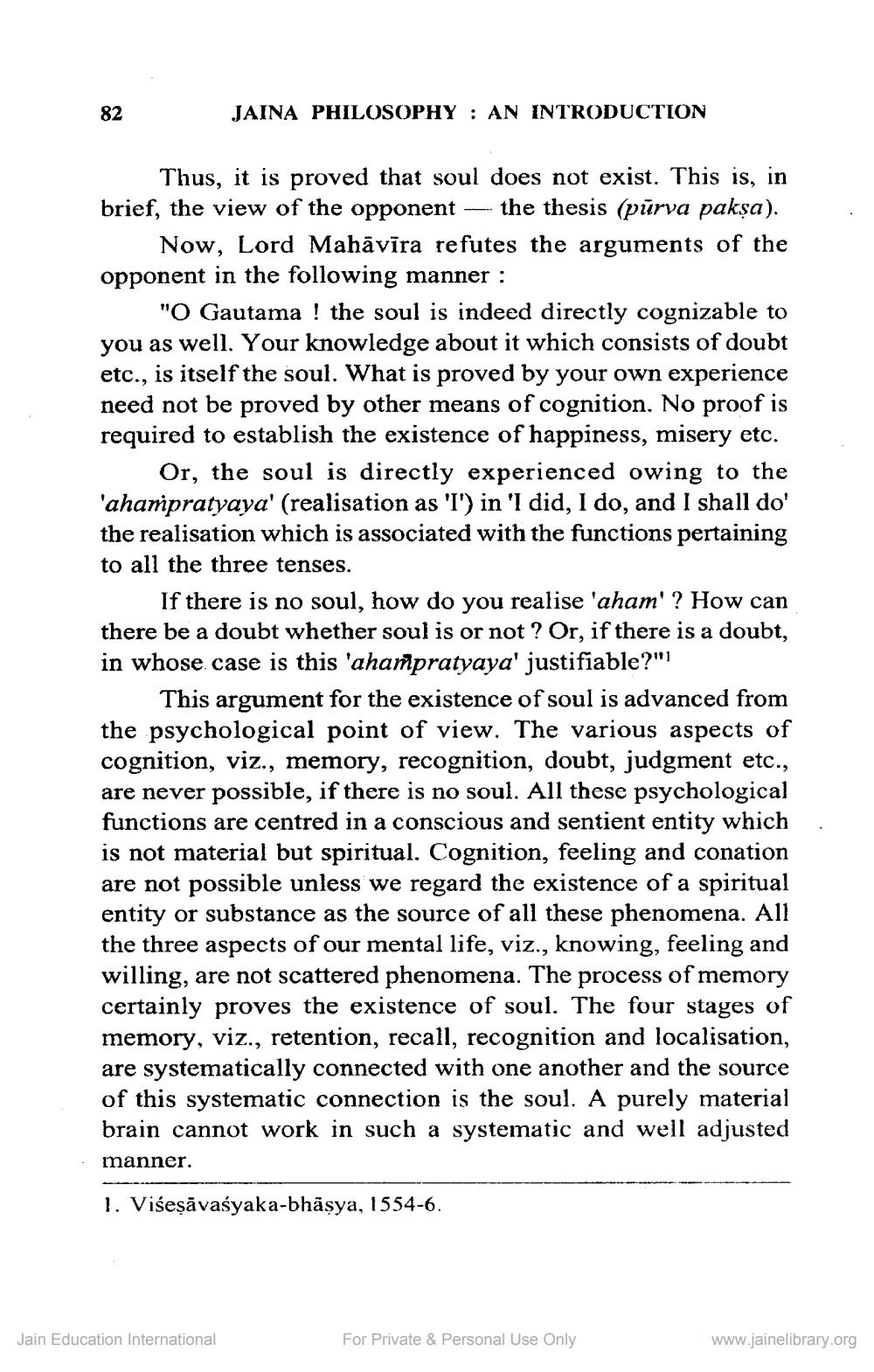________________
82
JAINA PHILOSOPHY : AN INTRODUCTION
Thus, it is proved that soul does not exist. This is, in brief, the view of the opponent - the thesis (pūrva pakşa).
Now, Lord Mahāvīra refutes the arguments of the opponent in the following manner :
"O Gautama ! the soul is indeed directly cognizable to you as well. Your knowledge about it which consists of doubt etc., is itself the soul. What is proved by your own experience need not be proved by other means of cognition. No proof is required to establish the existence of happiness, misery etc.
Or, the soul is directly experienced owing to the 'ahampratyaya' (realisation as 'I') in 'I did, I do, and I shall do' the realisation which is associated with the functions pertaining to all the three tenses.
If there is no soul, how do you realise 'aham'? How can there be a doubt whether soul is or not? Or, if there is a doubt, in whose case is this 'ahampratyaya' justifiable?"}
This argument for the existence of soul is advanced from the psychological point of view. The various aspects of cognition, viz., memory, recognition, doubt, judgment etc., are never possible, if there is no soul. All these psychological functions are centred in a conscious and sentient entity which is not material but spiritual. Cognition, feeling and conation are not possible unless we regard the existence of a spiritual entity or substance as the source of all these phenomena. All the three aspects of our mental life, viz., knowing, feeling and willing, are not scattered phenomena. The process of memory certainly proves the existence of soul. The four stages of memory, viz., retention, recall, recognition and localisation, are systematically connected with one another and the source of this systematic connection is the soul. A purely material brain cannot work in such a systematic and well adjusted manner.
1. Višeşāvasyaka-bhāṣya, 1554-6.
Jain Education International
For Private & Personal Use Only
www.jainelibrary.org




